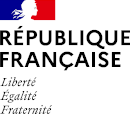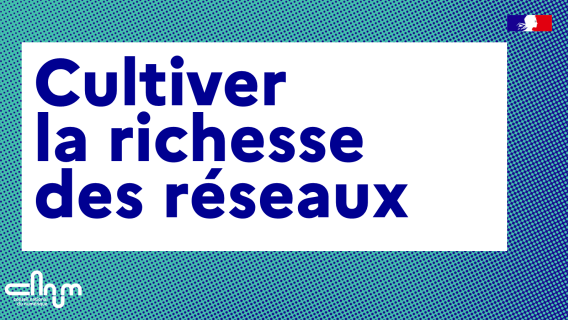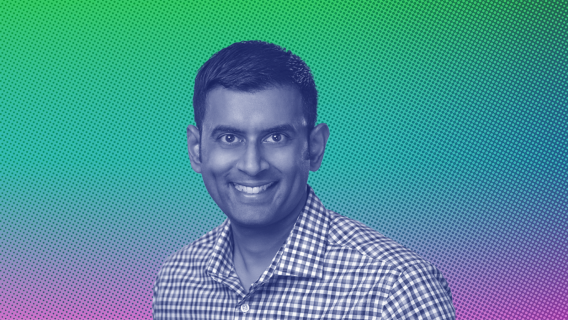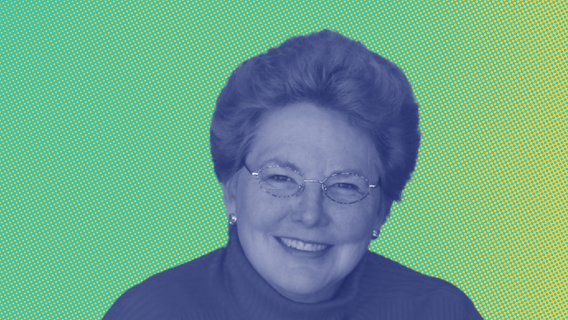Social media: exploring the opportunity of unbundling. A conversation with Maria Luisa Stasi
Maria Luisa Stasi, Head of Law and Policy for digital markets at Article 19, a non-profit advocating for freedom of speech, envisions the future of social media regulation by suggesting the concept of unbundling to open markets and give users viable choice.
How did you get involved in social media regulation?
I am a competition lawyer by training and a passionate advocate for the protection of free expression. For years, I’ve been discussing with human rights advocates ways to protect free speech online, and with competition experts and regulators ways to guarantee or reintroduce competition in a variety of digital markets.
I soon realised that, when it comes to social media networks, these two communities are often looking at the same behaviours of big platforms. However, they do so through a different lens and using different frameworks to describe and deal with platforms’ practices.
Finding myself at the crossroads between these two communities, I started to look at ways to combine free expression and competition considerations in social media regulation. Unbundling turned out to be one of the most interesting case studies, with great potential.
What do you mean by unbundling social media?
"Unbundling would finally give users agency over their online experience."
Social media networks such as Instagram, TikTok and alike offer many services at once: among others, they store users’ profile with all the pictures, information and content that users can upload; they organise the content users see or have access to; they remove or suspend illegal content or accounts; they provide instant messaging services. All these are offered as a package, or a ‘bundle’.
This contributes to the ‘lock-in’ of users, who are in a situation of take it all or leave it all. Additionally, this bundle has a wider strategic economic value for large social media platforms. By offering all these services together, they manage to both protect themselves from competitive pressure and deprive users of alternatives. Large social media networks are also able to keep their so-called ‘gatekeeping’ position safely (Editor's note: introduced in the Digital Markets Regulation (DMA), the concept of gatekeepers refers to platforms with strong economic power, which are unavoidable in order to benefit from the advantages of digital technology.). Without competition, these platforms have no incentives to improve the quality of their services: they do not have to stop surveilling users, gather an excessive amount of personal data, use addictive designs or silence some voices and amplify others, based purely on their economic interests.
Clearly, the bundle has an impact on users’ fundamental rights, like privacy and freedom of expression. With no alternative available, big social media platforms’ terms of services and policies become the standard these rights are dealt with in the market. Users are forced to accept those terms and policies, even if what they entail is data gathering without consent, over-removal of legal content, or underexposure to diversity.
However, the current state of affairs is not set in stone. Nor is it irreversible. To unbundle social media networks and require large platforms to interoperate with other service providers would mean to change this status quo, to open the market to competition, to allow a diverse community of providers to offer their services, and to provide users with the choice to pick the services they appreciate the most. Unbundling would finally give users agency over their online experience.
But then, if unbundling were to be implemented, what would social media look like? For users, the unbundling of services would mean that, when they create or have a profile on a large platform (e.g. Instagram), they would be asked whether they want Instagram itself or another player (to be freely selected) to provide the content curation service. This way, users would be able to choose content curation services that address their concerns or match their preferences. The option to stay with the same platform’s curation offer should be presented as opt-in, rather than opt-out. An opt-in default is more pro-competitive as it overtakes users’ bias towards the status quo, and reduces switching costs as well as the risk of platforms undermining the effects of unbundling by making it hard for users to switch and nudging them towards a locked-in situation.
Aren’t the new EU regulations enough to achieve the unbundling? And if not, would it be justified to call for more?
"This remedy has the potential to achieve several goals at once: increase competition, diversify the environment, introduce incentives to innovate and improve the quality of the services."
Not really. The Digital Services Act (DSA) doesn’t deal with the opening of the market. Rather, it imposes basic rules about how relevant digital services have to be provided. The Digital Markets Act does deal with markets’ contestability, but has missed the opportunity to call for the unbundling of the services offered by gatekeeping social media platforms. Indeed, the new framework imposes interoperability obligations for instant messaging services only (in its Article 7), while the possibility of a bundle of content hosting, moderation and curation remains untouched, and gatekeepers continue to be able to keep these markets closed to competitors.
However, I see significant potential in Article 6(12) of the DMA, which obliges gatekeepers to provide fair, reasonable and non-discriminatory access to business players willing to provide competing or complementary social media networking services. This provision could be used to impose the unbundling of social media services. Surely, such an outcome would be in line with the two stated DMA goals, namely to re-introduce market contestability and fairness in the relationships within the market. It would also support the third, implicit goal, which is to provide individuals (end-users, in the words of the DMA) with real choice -an obvious and inevitable consequence of the combination of the first two.
Yet, through this path, unbundling of social media networks will not be achieved as immediately and directly as it could have been through the imposition of an explicit and tailored obligation. Against this background, a call for more is not only justified on many grounds, it is also a proportionate remedy. First, unbundling has already been widely used in the communication infrastructure, and in particular in the telecoms sector. To open the market to new players, telecom regulators have required the dominant player to unbundle wholesale and retail, and to give access to third party providers. The impact of this step is now evident to all: customers have been provided with choices among the incumbent and other players, prices have gone down and the quality of the service has gone up - all due to the competitive pressure generated in the market.
Moreover, unbundling can be shaped as functional separation only, meaning that it doesn’t imply any obligation to divest or break up. As such, it would fall within the category of behavioural remedies rather than structural ones. This would make it easier to justify in terms of proportionality, as it would be less invasive of the companies’ freedom to conduct a business. In addition, the large social media platforms can still provide all services which are currently bundled, but are obliged to interoperate with other players and give users the possibility to pick alternative services if they want to.
This remedy has the potential to achieve several goals at once: increase competition, diversify the environment, introduce incentives to innovate and improve the quality of the services. It is fair to argue that in a scenario where a number of providers of content curation services compete among each other, they will have incentives to offer differentiated, innovative and better quality services to attract more users. ‘Better quality’, in this case, can mean how privacy oriented the service is, or how much it respects the free expression of users, among others.
Furthermore, social media platforms have become one of the main channels for people to access information. Thus, the content curation systems used by platforms have an impact on users’ information diet, potentially shrinking the latter’s exposure to diversity. Indeed, such systems are optimised to deliver a number of outputs; however, diversity of exposure is not one of them, at least not in a public interest reading of this concept. Unbundling would create the conditions for diverse content curation systems to flourish in the market, which could well adopt different models and be optimised for different objectives. Users would have the chance to pick the model they prefer and change it at any time, if unsatisfied.
All in all, this remedy would contribute to the establishment of a safer and more resilient information environment. It would also be a much better outcome than paternalistic solutions where a centre of power, either the state, the regulator, or the large social media platform, can decide how much diversity of exposure is optimal or enough for each user.
What are the challenges that need to be anticipated to ensure that unbundling achieves the desired effects?
Unbundling leads to a number of players interoperating, which means data and content would be processed by a bigger number of players than currently. Measures should be taken to guarantee that changes are operated in a way that adequately protects privacy and security for all stakeholders.
There is also the possibility that new content curation providers will simply replicate the business model of large social media platforms, rather than promote diverse, innovative and more human rights friendly models. Three factors could strongly minimise this risk. One, regulators could set clear rules of the game for all players, which would discourage extractive models and encourage diversity. Two, governments could facilitate and support initiatives coming from civil society, academia, or other non-profit actors, which could result in the creation of more public interest oriented systems. Three, governments and regulators could issue policies that support the take up of alternative, and public interest oriented, content curation systems.
Decision makers should acknowledge that power over information is raising huge challenges to our democracies, and that large social media platforms are playing a big role in exacerbating these challenges. We need a clear political commitment to decentralise this power and to create an open and more diverse, fair and inclusive information environment where users (people) are again empowered and their rights respected.
As final word, if you were to imagine the ideal social network in 10 years' time, what would it look like?
A world of options where users can create their own bespoke social network by combining a variety of services of their preference.





